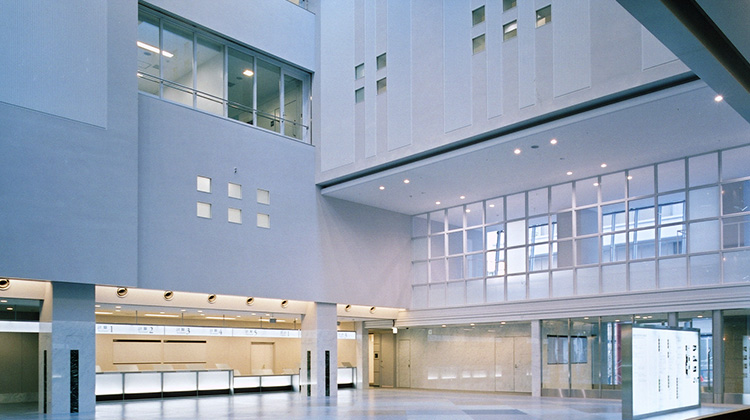AYA世代のがんについて
AYA世代とは、Adolescent&Young Adult(思春期・若年成人)世代の略称で、15歳から39歳までの世代を指します。AYA世代では、小児に好発するがん(小児がん)と成人に好発するがん(成人がん)がともに発症する可能性があります。高校生から社会人、子育て世代とライフステージが大きく変化する世代であり、AYA世代がん患者さんは就学、就職、恋愛や結婚、妊娠や出産などAYA世代特有の悩みを抱えています。また、AYA世代がんは極めて稀であることから周りに相談できる人が少なく社会的に孤立してしまう問題もあります。以上のことから、AYA世代がん患者さん一人ひとりの悩みを聞いて、ニーズに合わせた支援が大切です。
日本では、年間、約2万人のAYA世代の方が、がんと診断されています。年代によって発症しやすいがんの種類が異なることが知られています。15歳から19歳では小児に好発する白血病、リンパ腫、骨軟部腫瘍、脳腫瘍といったいわゆる希少がんが多い一方で、これらのがんは20代では徐々に減少し、30代では特に女性の乳がん、子宮頸がんといったがんが多くなります。
東海大学付属病院AYA世代支援ワーキングについて
東海大学付属病院では年間約150人のAYA世代がん患者さんの治療を行なっています。
治療と同時に、AYA世代がん患者さんの診療支援を行うべく、AYA世代支援ワーキングを設置しました。
構成メンバーは、AYA世代がん治療医(婦人科、乳腺外科、血液腫瘍内科、小児科、脳神経外科、整形外科、腎臓泌尿器科)、精神科医、リハビリテーション科医、緩和ケア科医、看護師、薬剤師、栄養士、診療情報支援担当員、がん相談支援員、ソーシャルワーカーなどの多職種で構成され、AYA世代の患者さんとご家族のサポートを行っています。
具体的には、新たにがんと診断され入院されたAYA世代がん患者さんに、「生活のしやすさに関する質問票」をお渡しし、患者さん一人ひとりの悩みを早期に把握し、解決につなげていくようにしています。
主な支援内容について
就学支援
高等教育以降は義務教育課程ではないため、院内学級がありません。このため、高校生や大学生のAYA世代がん患者さんは一時的に休学を余儀なくされるのが現状です。
最近では、神奈川県教育委員会において病気療養中の高校生に対する入院時等学習支援が行われています。県立高校および横浜市立高校の高校生を対象とした、医療機関への教員派遣型事業やICT機器を活用した連携授業が開始されました。私立高校については各学校単位での対応となりますが、特に高校生については入院治療中も学業支援を受けられる可能性がありますので、学校および主治医に確認してください。
妊孕性温存支援
がん治療の中には、妊孕性に影響を及ぼすものがあり、将来子供を授かることが難しくなる可能性があります。妊娠や出産を希望される患者さんにとっては心配される問題の一つとなります。妊孕性温存とは、がん治療による生殖機能低下の可能性があるAYA世代の患者さん・ご家族に対して、治療前に妊娠の可能性を残すために行う治療のことで、女性であれば、胚(受精卵)や卵子(受精前の卵=未受精卵)、卵巣組織、男性であれば、精子を凍結する方法が主な治療方法となります。妊孕性温存は、ご自身のがん治療によって起こりうる生殖機能低下についての正確な情報を得ること、がん治療の前に行うことが大切です。がんと診断された際に将来の妊孕性についてのことまで考えることは容易ではありませんが、まずはご自身が正確な情報を知ることが大切です。当院では、がん患者さんに対する実際の妊孕性温存を行なっておりませんので、がん治療を受けられる患者さん・ご家族で妊娠・出産や子どもをもつことにお悩みを抱えておられ、生殖医療の専門家への受診を希望する場合には、近くの生殖医療機関をご紹介いたします。神奈川県では県内の指定医療機関(神奈川県ホームページ参照)においてがん患者さんの妊孕性温存を積極的に行なっているため、当院からも多くの患者さんをご紹介しています。妊孕性温存は高額な費用がかかることもあり、神奈川県ではがん患者さんに対する妊孕性温存治療費助成制度があります。詳しくは下記リンクをご参照ください。
就労支援
AYA世代は、就職を控えた学生さんや働き盛りの方たちが多く、がんの罹患が就職・就労に影響し、不安を感じる方が少なくありません。がん相談支援センターでは、仕事に関する相談を受けています。がんという診断を受けたその日から、仕事のことや治療費、生活費のことなど、経済面の不安を感じる方は少なくありません。「職場にどのように伝えるか。」「仕事は続けられるのか。」「休職中の生活費や治療費をどうしたらいいか。」など多くの心配があります。一方で、最近のがん治療は、治療技術の向上によって、長い期間がんと付き合いながら生活をすることが可能な時代となりました。同様に、がん治療と仕事の両立も可能になり、今では、がんは「働きながら治す」時代になりました。国も「がん患者の就労」に力を入れており、医療機関だけでなく、受け入れ側の企業や雇用主にも理解を深め、働きやすい職場の実現に向けた活動が広がりつつあります。現在治療中の患者さんの中にも、「再就職したい。」「いったん治療に専念するために休職したが、そろそろ職場復帰や仕事の再開を考えている。」「今の体力に合った仕事に転職したい」という方は、多くいらっしゃいます。このような状況の中、がん相談支援センターでは、治療を続けながら働きたい患者さんや、経済面で不安を感じるたくさんの患者さんやご家族の支援を行っております。
未成年のお子さんがいらっしゃるがん患者支援
「がんと診断されたのですが、小さなこどもがいて預け先がありません」、「こどもにどうやって伝えたら良いのかわかりません」、「こどもが不安になるのではないか」など、未成年のお子さんがいらっしゃるがん患者さんは多くの悩みがあります。このようなご相談についても、がん相談支援センターにまずはご相談ください。下記に参考となるホームページアドレスを記載しています。
10歳ぐらいまでの子どもがいる養育者向け
内容:年齢別の対応/伝える内容 『わたしだって知りたい』
11歳~の子どもがいる養育者向け
内容:伝え方・対応の工夫 『だれも分かってくれない』
子どもと一緒に読む
内容:がんって何?治療って何? 『がんはどんな病気?』
ピアサポーター/患者会
がん患者さんの悩みは実際に、がんと診断され治療を受けた人にしかわかりません。
特にAYA世代のがんは希少であるため、周りに同じ境遇の人が少ないため社会的に孤立してしまう問題があります。同じ悩みを抱えた人同士で情報を共有しあえる患者さん団体があります。どのようなことでも一人で悩まないで相談しましょう。
相談窓口:がん相談支援センター
東海大学付属病院では、AYA世代がん患者さんのどのような悩みでも相談ができます。
がん相談支援センターまでご連絡ください。
まずは、直接、主治医や担当看護師に相談していただいても構いません。
受付時間(休診日を除く)
月曜日~金曜日 9:00~15:00
第1・第3・第5土曜日 9:00~12:00
ご相談は、面談または電話でお受けしています。ご予約も可能です。
TEL


